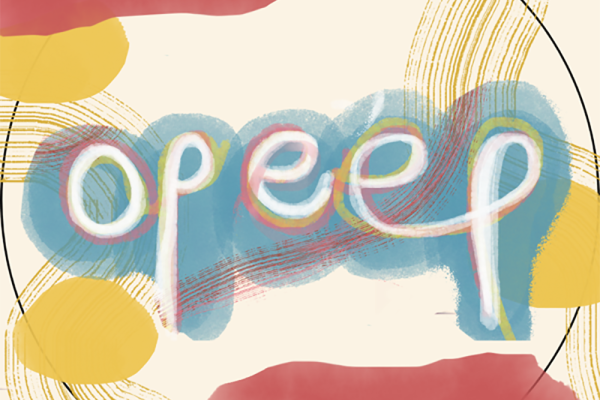Slavic Studies in a Prison

By Aurora Malave, CSEEES Summer 2025 Intern
OPEEP, or the Ohio Prison Education Exchange Project, believes everyone has the right to an education. The program increases educational opportunities for incarcerated individuals, training professors from The Ohio State University so they are qualified to teach in prisons. Recently, one CSEEES affiliate faculty member, Dr. Jennifer Suchland, taught Slavic/ WGSST 5450, Global Human Trafficking: Representations and Realities at the Ohio Reformatory for Women (ORW).
Professor Suchland has researched and taught courses on human trafficking for over 20 years. She advocates for alternatives to carceral anti-trafficking methods which often hyper-criminalize vulnerable workers and criminalize survivors. After working with the Ohio Justice and Policy Center on their Beyond Guilt project, she learned more about the problems of over-incarceration and over-punishment. It was a natural step for her to get involved in OPEEP.
Teaching in a correctional facility presented additional challenges. There is no wifi or internet in a prison, a long commute, and extra security, such as needing an ID to enter. At a few points in the semester, a student forgot their ID and had to drive back home to retrieve it.
But these challenges didn’t get in the way of Professor Suchland providing a quality education. As she put it herself, the experience was “High labor, high reward”. This class was one of the most engaged Suchland has taught. The incarcerated students were eager for an opportunity to learn, and their passion rubbed off on the Ohio State students. Suchland had to skip some of the assigned readings in class to continue discussions about others, as students were highly invested.
In the prison setting, students fully appreciate the chance to receive an education.
College can sometimes feel like a business transaction instead of learning. Students pay to obtain a degree and improve their career choices. But in OPEEP, the value of education is more apparent.
“It is the ideal context to be an instructor,” says Suchland. “It’s not just about getting a good grade. They really want to be there and think.”
Through her work in OPEEP, Suchland feels as if she made a noticeable impact on the lives of her students. Many of the students in Professor Suchland’s class were victims of human trafficking, but also arrested for it. By teaching her students about the history of human trafficking, and comparing the system in the U.S. versus Russia, Suchland believes she helped her students get a better understanding of their situations.
OPEEP helps incarcerated students adjust to their life outside of prison. Obtaining a job is harder with a criminal record, but having a form of higher education can help overcome that hurdle. For some university students, OPEEP affected their career choices as well. Witnessing the prison system in the U.S. firsthand convinced a few students to become human rights lawyers.
Devon Rancourt, an MA student at CSEEES who came to Ohio State specifically due to her interest in the Balkans and the faculty researching that region, also felt enriched through OPEEP. Rancourt states that the class changed the way she viewed incarcerated individuals.
“I think they are less of a mysterious group of people,” she says.
Before this class, Rancourt had only read about the criminal justice system and the experience of inmates. This course allowed her to meet them firsthand. Despite initial awkwardness, the students were able to interact and form connections.
“It was a space for all of us to be humanized. We were referring to each other by first names. It was an environment for us where they could learn and we could be equals, or as close as possible as you could be equal with people in prison.”
Rancourt strongly recommends other students sign up for an OPEEP course. Other than Slavic/WGSS, OPEEP offers classes in a variety of fields. To apply, students should go to the OPEEP website to see upcoming courses and opportunities.
